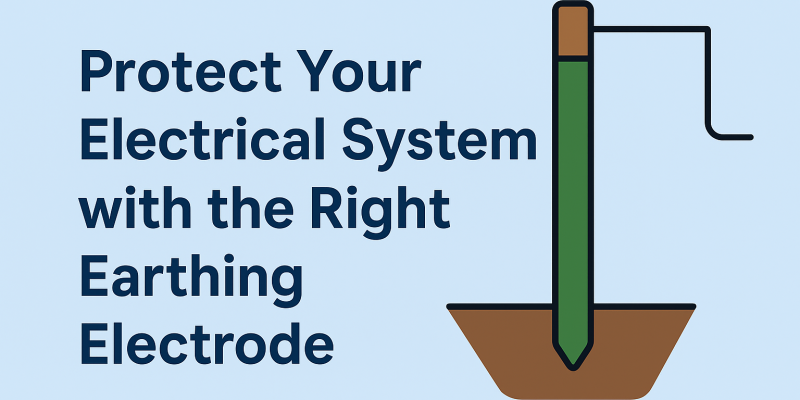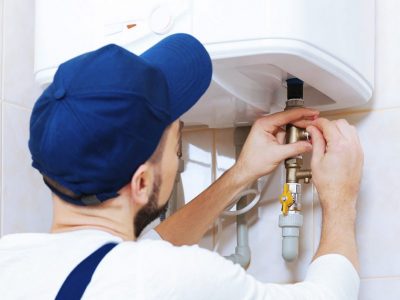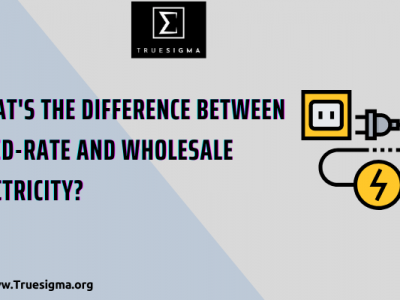The electrical safety aspect is indispensable in an era where power is the main source of energy for the entire world, including houses, buildings, and even very large factories. One of the most crucial but unappreciated elements that contribute to electrical safety is the earthing electrode. A qualified and perfectly installed earthing electrode can save your electrical installations from defects, power spikes, and even dangers to life.
The Significance of Earthing
Earthing or Grounding refers to the process which discharges the electrical energy directly to the earth using a low-resistance path. In other words, the basic aim of earthing is to prevent electric shocks and damage to the equipment by making sure that the excess current flows into the ground instead of passing through a person or machine.
In case of faults or leakages in the electrical system, a proper ground will make sure the system is still safe and stable. Hence, the galvanized iron GI earthing electrode is the one that performs the vital function of making the electrical system touch the earth physically; thus, it provides a reliable and safe route for the dissipation of fault current and simultaneously improving electrical safety in general.
What Is an Earthing Electrode?
An earthing electrode can be defined as a conductive rod, pipe, or plate that connects electrical installations to the earth. It conducts electrical currents to the ground safely and, thus, serves as a direct path of low resistance for electrical currents. Depending on the type and application, earthing electrodes can be made of different materials such as galvanized iron (GI), copper, or chemical compounds aimed at enhancing conductivity and corrosion resistance.
The performance of any grounding system is directly influenced by the quality, type, and installation of the electrode. Besides, a low-quality or corroded electrode will cause voltage instability, which will lead to more frequent equipment breakdowns, and ultimately, safety risks.
Why the Right Earthing Electrode Matters
Choosing the correct earthing electrode for your electrical system can drastically enhance safety, system performance, and longevity. Here are some of the ways how:
Prevents Electrical Shocks:
What a good earthing electrode does is that it directs any leakage or fault current into the ground safely, thus minimizing the risk of electric shock to both humans and animals.
Protects Equipment:
Voltage surges, which can be caused by lightning or short circuits, may lead to the destruction of appliances, servers, or machinery. The right earthing electrode allows these surges to take the path of least resistance, hence, repair and downtime costs are avoided.
Ensures System Stability:
Through stable grounding, voltage control is improved and sensitive electronic devices’ performance is enhanced as they are less affected by fluctuations and electromagnetic interference.
Increases Lifespan of Installations:
Corrosion-resistant electrodes such as copper-bonded or GI electrodes continue to have effective conductivity for years; hence, they provide safety that is consistent and require minimal maintenance costs.
Types of Earthing Electrodes
There are many different kinds of earthing electrodes that differ in design, application, and soil conditions:
GI Earthing Electrode: These are made from galvanized iron, which is quite a cheap, and reliable metal, plus it is suitable for almost all soil types.
Copper Earthing Electrode: Aware of brilliant conduction and anti-corrosion properties, it is therefore industrial and commercial areas where the use would be the best option.
Chemical Earthing Electrode: Upkeep is done by the conducting backfill compounds that keep the resistance levels steady and make the electrode need maintenance at very low frequency.
Pipe and Plate Electrodes: Old-fashioned systems that still serve small-scale installations but might be replaced by new ones that have better features.
The selection of the proper type relies on the condition of the soil, the electric load, and the surrounding environment.
Key Factors to Consider Before Choosing an Earthing Electrode
Soil Resistivity:
The type of soil determines the ease with which electrical current flows to the ground. For high-resistance soils, metal rods with chemicals or copper are the best options.
Corrosion Resistance:
It is necessary to use electrodes with a long-lasting anti-corrosive coating in the most challenging environments, such as the case of moist or salty places.
Maintenance Requirements:
No-maintenance or chemical earthing systems are winning the modern installations race as they do not need frequent watering or monitoring.
Load Capacity:
Pick electrodes that will not only bear the electrical load but also will not get hot or decay with time.
Compliance with Standards:
Check if your earthing installation is up to the IS (Indian Standards) or IEC standards for being safe and efficient.
Benefits of Installing the Right Earthing Electrode
- Enhances safety for people and property
- Protects electrical and electronic devices
- Reduces system failures and downtime
- Ensures compliance with safety regulations
- Improves operational reliability and energy efficiency
- Professional Installation Matters
Even if the best earthing electrode is there, it can come to an end if it has not been installed properly. It is essential to go for experts or certified earthing electrode manufacturers who are well versed in soil testing, electrode placing, and grounding resistance measuring. The proper installation gives a stable and long-lasting grounding system.
Conclusion
In today’s world with sophisticated electrical infrastructure, grounding is more than a safety feature—it is a requirement. The right earthing electrode is the starting point for safeguarding your electrical system, assuring a continuous power supply, and bypassing expensive accidents or equipment failure.
If you are building up a home connection, a data center, or an industrial site, spending money on a good earthing electrode will be a guarantee for safety, stability, and peace of mind for many years ahead.


















Comments